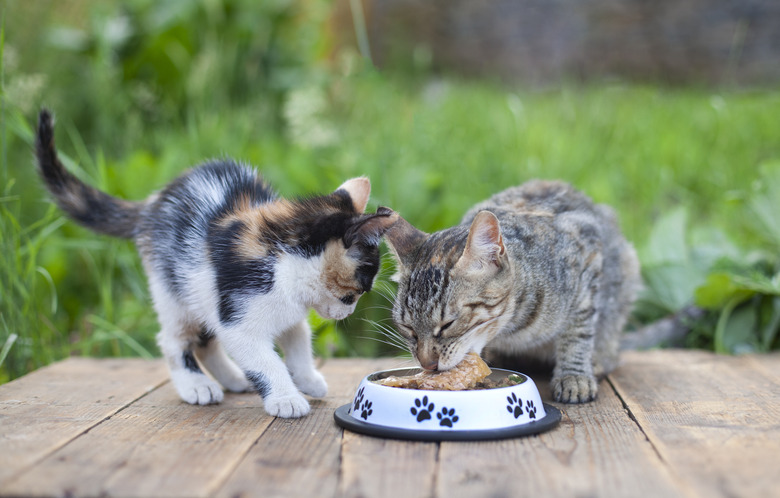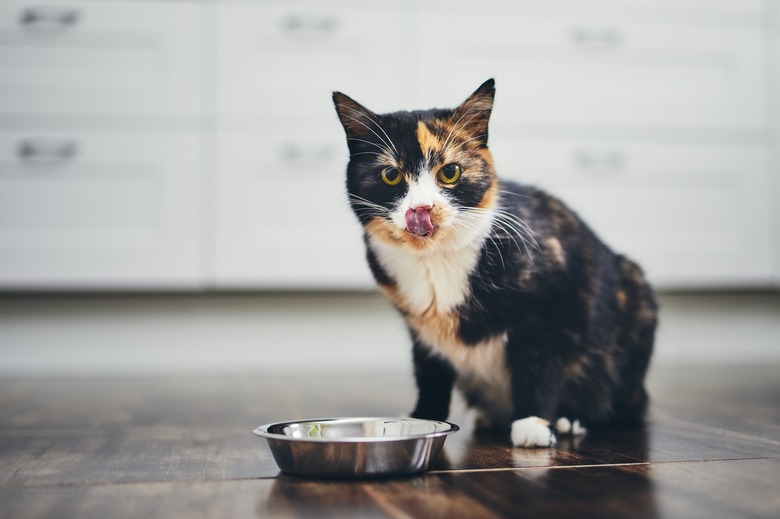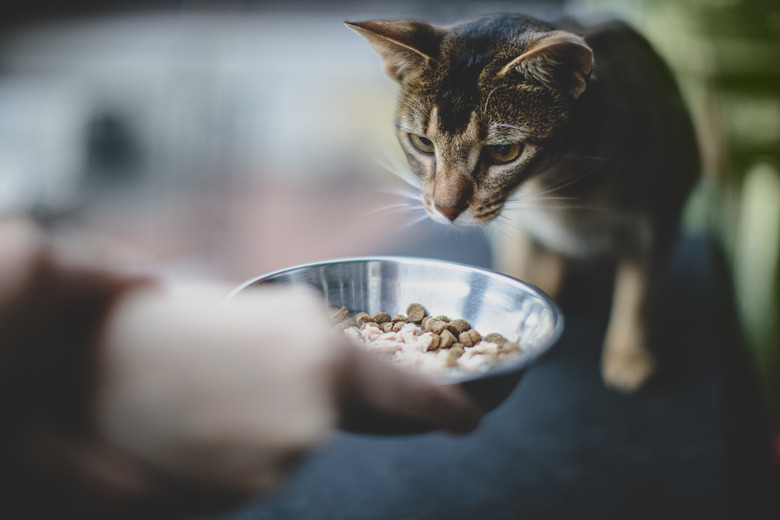Can Cats Eat Chicken? Here's How To Feed Your Cat Boneless Chicken Breast
Can cats eat chicken?
Many cat owners are concerned about the long-term effects of commercial cat foods on their cat's health due to preservatives and possible toxins and are looking for the best food for cats. This has led to an increased interest in whether a homemade or raw food diet can provide for their nutritional needs. But this raises the important question of whether cats can eat chicken or not.
The short answer is yes. Thoroughly cooked chicken breast can be given to your cat safely as a treat on occasion or incorporated into a meal to encourage a finicky eater. But chicken itself isn't a reliable source of the necessary nutrients your cat needs to stay healthy. A high-quality commercial cat food diet is the best choice for your cat's health and well-being.
Should cats eat chicken?
Should cats eat chicken?
A healthy diet for a cat is a meat-based diet, but this doesn't mean you should switch out your commercial pet food diet and start giving your cat chicken all the time. High-quality commercial diets are formulated and tested by veterinary specialists and are highly regulated to ensure they provide all the nutrients your feline needs to thrive. Chicken alone won't meet the minimum nutritional requirements to keep your cat healthy.
If you want to feed your cat a homemade diet, you should work with a veterinary nutritionist to design a balanced diet personalized to your furry friend's needs. This may include developing recipes incorporating other ingredients for nutritional value or adding supplements for health benefits and to avoid a harmful nutritional deficiency. Switch diets slowly to avoid upsetting their digestive system.
Can cats eat chicken breast?
Can cats eat chicken breast?
Chicken breast is one of the better parts of the chicken for your cat. It is a source of lean protein while avoiding the higher fat content in other parts of the chicken, like the wings or thighs. You can further lower the fat content by removing the chicken skin and feeding your cat only the meat. Too much fat in your cat's diet can lead to health problems, such as obesity or pancreatitis. Chicken breast should only be offered as an occasional treat, even with this lower fat value.
How to best prepare cooked chicken for cats
How to best prepare cooked chicken for cats
The chicken meat must be fresh and suitable for human food. Remove the skin and any bones from the chicken and then bake or boil it. The chicken should be prepared plain and fully cooked before feeding without adding oils, herbs, onions, seasonings, or breading. You can safely store the excess cooked chicken in the refrigerator for three to four days.
Cats prefer warm food and may refuse the chicken straight from the refrigerator. You can heat it by placing it in a zip-tight bag and putting that bag in a bowl of tepid water until it reaches room temperature. You can also warm the chicken in a pan or the microwave but check its temperature to ensure it isn't too hot before serving so that your cat doesn't burn their mouth. Cut it into small pieces so your cat can eat it easily, and there's no risk of choking.
Can cats eat raw chicken?
Can cats eat raw chicken?
No, you should not feed your cat raw chicken. Experts do not recommend raw diets, including raw chicken, due to the significant public health risk. Raw meats may carry dangerous bacteria, including salmonella, E. coli, and L. monocytogenes. While rare, cats can suffer from food poisoning if they ingest harmful bacteria in their foods. Also, handling and preparing raw meats may put you and your family at risk.
Properly cooking chicken will kill off any bacteria that it may contain. After the chicken has been prepared, ensure you disinfect any surfaces and tools used to prevent potential contamination in your home.
If you suspect your cat may be suffering from food poisoning, contact your veterinarian. Left untreated, cat food poisoning can cause serious long-term health problems, including kidney damage, liver damage, or cardiac problems. The sooner your cat receives treatment, the better their chance of fully recovering.
Can cats eat chicken bones?
Can cats eat chicken bones?
No, you should remove all bones before feeding chicken to your cat. After being cooked, chicken bones are brittle and may break apart or splinter into small, sharp pieces. These bone fragments may cut or tear at your cat's mouth, causing pain and creating a risk for infection. But the most significant risks from eating chicken bones occur after the bones have been swallowed.
The bone fragments are a choking hazard. If swallowed successfully, they may cause tears or damage to the digestive tract, such as the throat or esophageal lining. They may even damage a vital organ, causing internal bleeding that can be fatal if not treated fast enough. Both cooked bones and raw chicken bones can also cause life-threatening intestinal blockages. If you suspect your cat has eaten chicken bones, contact your veterinarian or the nearest emergency clinic as soon as possible.
What should a cat eat?
What should a cat eat?
Cats are obligate carnivores, meaning they must eat meat to meet their nutritional needs and should not be fed a plant-based diet. The best food for cats is a high-quality commercial feline diet. They are meat-based and nutritionally balanced to keep your cat healthy. Along with animal protein, cats require calcium, taurine, and essential fatty acids for balanced nutrition.
The ideal diet would be a daily canned and dry food diet with occasional treats, like cooked chicken breast. A high-quality commercial kibble is formulated to provide the vitamins, minerals, and other nutritional needs to support a healthy lifestyle. Canned food has high moisture levels. This is important since many cats aren't big water drinkers and get most of their water from food. In addition to canned food, fresh water should always be available to help maintain good hydration and urinary tract health.
Treats can be a fun addition to your cat's diet but shouldn't make up most of what your cat eats daily. You can give your cat treats in moderation as a special reward, during training, or to encourage a picky eater to eat, but this is in addition to a balanced diet.
The bottom line
The bottom line
Fully cooked chicken breast is a safe and healthy snack for your cat in moderation. Avoid feeding your cat too much chicken, as it can contribute to unwanted weight gain. While chicken makes a good treat, it should not be used as a replacement for a balanced diet. The best food for your cat is a high-quality commercial feline diet, including both dry and canned foods daily.


